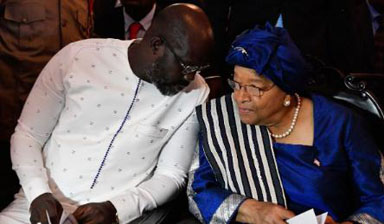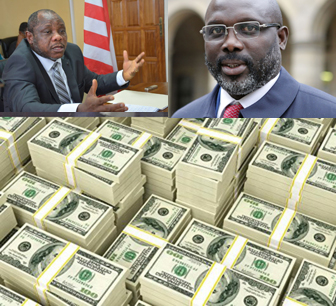Liberia Celebrates 172nd “Silver-Platter” Independence
By J. Patrick Flomo
The Perspective
Atlanta, Georgia
July 18, 2019
On Friday, July 26, 2019, Liberians at home and in the Diasporas will celebrate the 172nd sovereign independence of the Republic. Independence Day in general is a festive occasion that highlights two events: memorializing the heroes and heroines who gave their lives for the cause of freedom so that the living can experience the blessings of liberty endowed by their Creator; and second, to take stock of the nation’s economic, social, and political health and invest in policies that will make life better for future generation. Sadly, this is not what the Liberia Independence celebration exemplifies or epitomizes.
The history of independence for most nations is sowed in an ocean of blood of those who gave their lives for freedom; it is not so for Liberia. Liberia is one of the rare political cases where independence was handed on a silver platter. Liberia was founded in 1822 by a group of philanthropic individuals comprised of abolitionists, slaveholders, and Presbyterian clergy. They established an organization in 1816 called the American Colonization Society (ACS). This was the brainchild of Rev. Robert Findley, a Presbyterian minister from Princeton, New Jersey. Surprisingly, none of the freed people of color (for whom Liberia was founded) were members of the ACS.
Liberia’s independence was a result of a controversy regarding the Liberian Commonwealth’s (1839 to 1947) illegal seizure in 1843 of Little Ben (a trading ship) a Freetown base firm of Cortland and Davidson for refusing to pay custom duties; in retaliation, the Freetown governor seized John Seys (ship owned by Stephen A. Benson). The Freetown governor’s position was that the Liberian Commonwealth was not a state with international legal rights to levy taxes on international trading ships. However, the British Government requested the US government’s position on the Liberian Commonwealth. The US response was: Liberia is not a US colony. Hereafter, the ACS urged the commonwealth to take responsibility and declare independence (John Peter-Pham, 17). With the blessing of the British Monarchy (Queen Alexandrina Victoria), but surprisingly not the US, J. J. Robert declared Liberia an independent republic. Thus, Liberia earned its liberty without war or rebellion.
 |
|---|
| Passing on the corruption legacy |
 |
|---|
Here we are in 2019. After nearly two centuries of independence, our Republic is mired in a swamp of corruption, dire poverty, mediocre healthcare, 80 percent unemployment and underemployment, 60 percent illiteracy rate, people living on less than $2.00 per day, and less than 5000 miles of paved highway. What is most astounding is the dismal economic policy, especially the monetary policy. We have a dual currency system: the US$ and the LD$. What is most stupefying is that the Government of Liberia will not accept the currency issued by the Liberian Central Bank (authorized by the Liberian Legislature) for the transaction of business but will only accept US$. If the government has no faith in its legal tender, what are the masses to hope for? The lack of faith in its legal currency is completely ludicrous. With such a grim outlook of our stocks over the past 172 years of independence, what are we celebrating? This should be a period of reflection rather than a fête.
If Liberians in the Diasporas were dreamers, quixotic, pukka, nationalistic, visionary, patriotic, and held one ounce of fidelity to the homeland, we would spend 2 percent of the thousands of dollars that we will spend on hedonistic activity on July 26 or 27 to come together and seek a way to extricate our Republic from the miserable conditions it is in today. We should begin a review of the role of the Asian Dragon (the new global hegemony) activity in Liberia. With no national prestigious organization to harness such a concept, we will continue to delude ourselves that we have a first-rate Republic rather than striving to make our Republic a City Upon A Hill on the African Continent.
About the Author: Patrick Flomo can be reached at zamawood@gmail.com